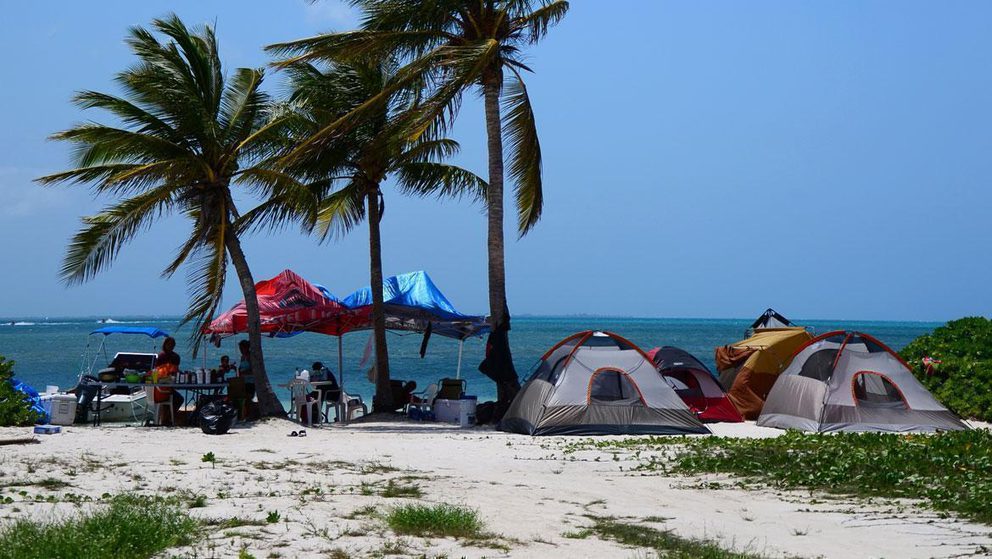
Camping in Grand Cayman
Easter camping in Grand Cayman, Cayman Islands is allowed, there are just very strict rules you must abide by.


Camping on Cayman beaches over Easter is a long time tradition in the Cayman Islands. Every year you will see hundreds, if not thousands of people camp on beaches all over the Cayman Islands. It’s a great opportunity for families and friends to get together and reminisce about simpler times, as well as enjoy the natural beauty of the Cayman coastline.
Popular camping spots in Grand Cayman are beaches along the Queen’s Highway in East End, in and around Rum Point and Cayman Kai and along Seven Mile Beach. However, on the latter it is always private, undeveloped land or one of the public beaches that you can camp on. A favourite spot in Little Cayman is Point of Sand.
The perception to date has been that the police quietly overlook people camping and that at any other time of the year it is illegal. However, it is in fact legal! There are a few very specific rules however, that must be observed to make it legal. These are as follows:
- If you camp on a privately owned piece of land then all garbage that you generate must be taken away with you when you leave. If you camp on a public beach then you must ensure that your garbage is put in the bins or if there is no bin (or it is full) then you take the garbage away with you and dispose of it properly somewhere else.
- There is a legal requirement for human waste to be disposed of properly. Therefore you must either rent a portaloo or camp near a public toilet.
- You are allowed to camp on the Government’s public beaches but you cannot camp on land which has a "Do Not Trespass" sign on it, or on land which has a private property sign and the owner has not given you permission to camp there.
- In the last couple of years, you could not reserve or use a cabana on one of the public beaches for the purpose of camping in it. Previously in the past you could, so it is worth checking with the Public Lands Commission to see if this rule has changed. You can contact them on (345) 946 7110 or email: plc@gov.ky.
- Lighting a bonfire is illegal unless permission is gained from a) the Department of Environmental Health (345 949 6696) and b) the Fire Department (345 949 2276). You should allow two weeks notice and there may be a charge of CI$50. Keep bonfires away from trees and bushes. Make sure ashes are extinguished with water and that they are not smoldering when you leave the camp site. To build and light a bonfire on public land you will need to download the Public Land Permit Application Form, then you will need to fill in the 'Non-Vendor' section and submit the form to plc@gov.ky. You can pay this fee to the Secretary for the PLC located at the Crown Square or at any Post Office in the Cayman Islands.
- Barbequing on public land is allowed during the Easter camping period, and you do not require a PLC permit.
- If you light a fire or have a propane BBQ then the proper equipment must be used to prevent injuries.
- All bonfires/cooking fires must be covered properly (i.e. buried as deep as possible) after you have finished with it to prevent anyone stumbling into it by mistake and getting burned.
- Importing tents and camp beds is allowed.
- Please note that only legal residents of the Cayman Islands are permitted to camp on public land without a permit. Legal residents can camp on public land without a permit for five consecutive days, seven days prior to or following a public holiday, and ten days prior to Good Friday and ten days following Easter Monday. If legal residents would like to camp on public land outside of these permitted periods, then they will need to get a permit from the Public Lands Commission. Non-residents require a permit to camp at all times.
Check out our article on Easter in Cayman for more Easter traditions.



